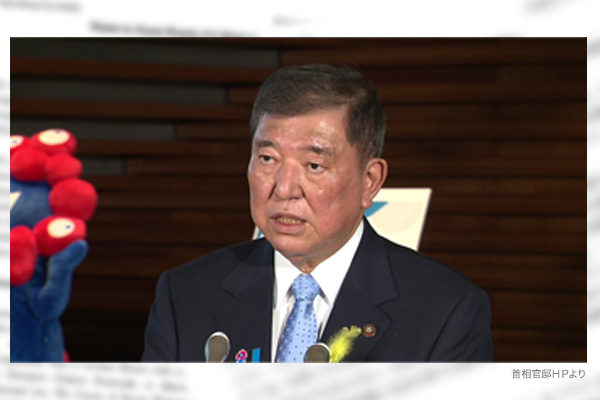As the July 9 deadline for Japan-U.S. trade negotiations was approaching, U.S. President Donald Trump voiced his dissatisfaction with Japan’s stance and threatened to raise tariffs on Japanese products to 30-35%, sending shockwaves through Japan. Trump reiterated his criticism of Japan’s auto and rice imports. He criticized Japan for refusing to accept U.S. rice even amid a domestic rice shortage. He may be seeking to extract concessions by putting pressure on Japan.
Failing to change Trump’s assumptions
As Trump is merely repeating his previous assumptions, we do not need to overreact by interpreting his remarks as a sign that Japan-U.S. trade negotiations are failing.
The background to the remarks includes the situation within the Trump administration. U.S. government officials acknowledge that Japan-U.S. ministerial trade talks have made steady progress thanks to Japanese Economic Revitalization Minister Ryosei Akazawa’s seven visits to Washington. However, Treasury Secretary Scott Bessent, who is in charge of the bilateral trade talks, has been too busy with the passage of a key tax cut bill through Congress to provide the president with sufficient updates on the negotiations. The Trump remarks came amid this situation.
However, it is important to note that Trump has reiterated his dissatisfaction with Japan’s rice and auto imports, as he did at a press conference in early April. Over the past three months, Japanese Prime Minister Shigeru Ishiba held one face-to-face meeting and three telephone conversations with Trump. The problem is that none of these interactions have resonated with the president.
Farm products constrain trade agreement
Furthermore, Bessent made an important statement: “[the Japanese] have an Upper House election on July 20, which I think gives them a lot of domestic constraints in terms of doing a deal.” He clearly had Japan’s farm imports in mind. In response to pressure from the ruling Liberal Democratic Party, Akazawa has vowed not to sacrifice Japanese farmers, refusing to offer any concessions on agricultural imports as a bargaining chip in the trade talks with the United States.
However, the Trump administration places priority on farm products, as indicated by U.S. Trade Representative Jamieson Greer at a congressional hearing. Trump brought up rice because Japan’s rice import restrictions are viewed as a symbol of the closed nature of the Japanese market.
In the early stages of the trade negotiations, the Japanese government floated a proposal to create a special quota for U.S. rice as part of Japan’s “minimum access” tariff-free rice imports. In the past negotiations over a Trans-Pacific Partnership (TPP) free trade agreement, Japan had once agreed to import up to 70,000 tons of rice from the U.S. free of tariffs. It may make sense to set a symbolic import quota equivalent to 1% of Japan’s rice production in response to Trump’s trade demands without hurting Japanese farmers, given the current situation in which the Japanese government is releasing rice stockpiles to cope with the rice shortage. However, Ishiba was unable to accept this reasonable proposal due to opposition from LDP lawmakers affiliated with the agricultural lobby. It is no exaggeration to say that this strategic mistake by the top leader has led to Trump’s latest remarks.
Unavoidable concessions on rice imports
If the trade negotiations drag on, Japanese companies will face a serious situation in which they must bear the burden of Trump’s tariffs for an extended period. If Ishiba considers the protection of the broad-based auto industry a matter of “vital national interest,” he cannot get around the rice import issue. The responsibility for being caught in the crossfire of Trump’s tariff offensive lies squarely with Ishiba himself.
Masahiko Hosokawa is a professor at Meisei University and a former director-general of the Trade Control Department at Japan’s Ministry of Economy, Trade and Industry. He is also a Planning Committee member at the Japan Institute for National Fundamentals.


